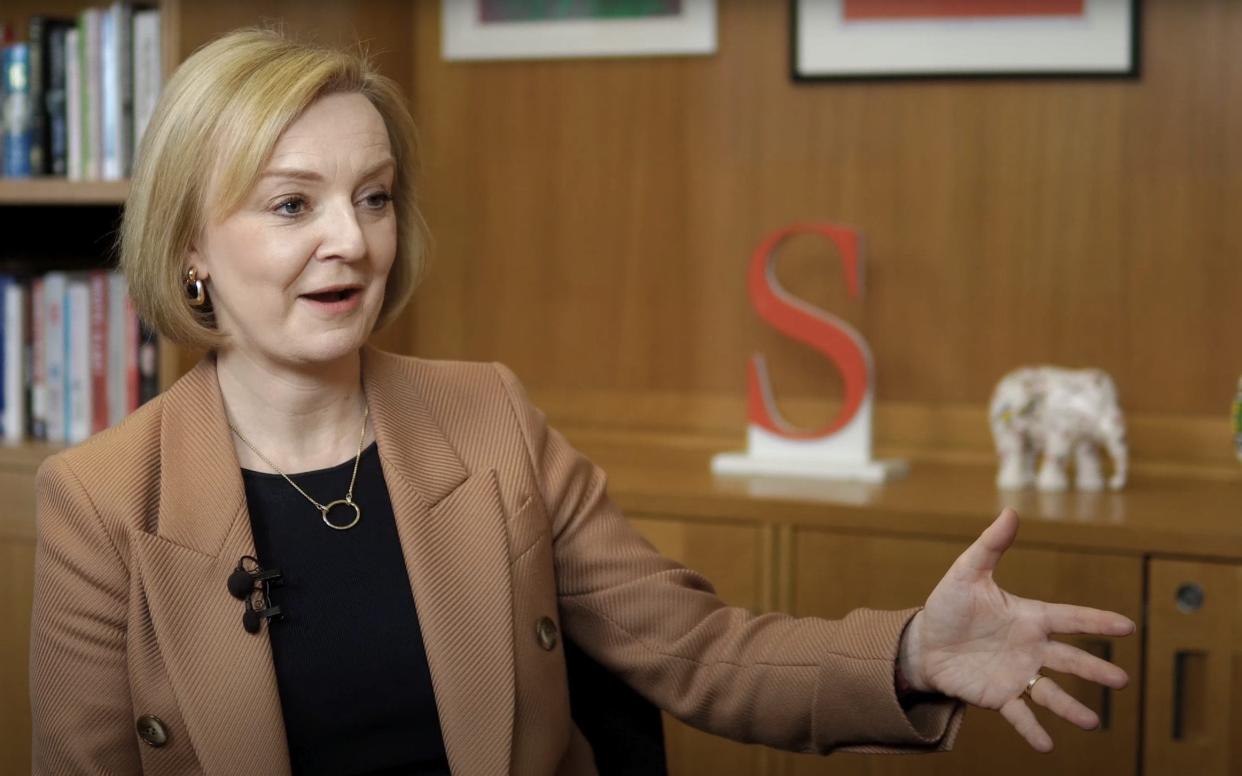Liz Truss dared question a myopic OBR, who will pick up her mantle?

On the wall of Liz Truss’s new office is a portrait of Che Guevara dressed in Horatio Nelson’s uniform: an imaginary British revolutionary. It’s there to inspire her in her next political project – running another assault against the establishment. The first time, as prime minister, she tried radicalism without the arguments. It didn’t go well. Now, she wants to try it the other way around.
I met her last week with my colleague Katy Balls in her first interview since leaving Number 10. She wanted to explain what she sees as a paradox: how something that sounds technical, almost trivial, too boring to discuss, has become so powerful to decide the direction of British politics. The economic models used by the Office of Budget Responsibility (OBR), she says, have a dim view of the efficacy of tax cuts. And for as long as prime ministers are judged by those models, they are tied to high-tax, low-growth models. “The OBR and its position is taken very seriously by the market,” she says. “So it effectively constrains what the Government can do.”
It’s a myth, she says, that she failed because she tried deficit-financed tax cuts. Her energy bill bail-out “was 60 per cent of the [cost of the] mini-Budget” so the bulk of Trussonomics ended up being a £60 billion borrow-and-spend splurge. Most of the tax cuts were, she says, a decision not to raise corporation tax – which the OBR said would end up costing £20 billion. Truss flatly disagrees.
“The question is: ‘Is the best way to deal with that debt cutting taxes, supply side reform, increasing growth? Or is the best way of dealing with that debt raising taxes?’ Now, my view is that raising taxes is counter-productive. It’s not actually going to lead to reducing debt in five years’ time. But my view is not shared by this broader orthodoxy: that’s the issue.”
But who challenges this orthodoxy? She has no rival economic forecaster to point to, and this is where she hopes to make a difference now. She seeks to use her profile as former prime minister to promote arguments, even foster new institutions that might produce covering fire for those promoting low-tax economic models. If this sounds deluded, I remember George Osborne’s allies once made precisely the same case to me in 2008. This was the idea behind the OBR: to create an institution that would run “dynamic” tax modelling and change the debate by making the case for tax cuts.
At the time, the Institute for Fiscal Studies (IFS) was revered in Westminster and Robert Chote, its director, held huge influence on deciding how much tax cuts would affect growth. The OBR was originally intended to challenge Chote by being a rival to the IFS by running “dynamic” modelling – that is to say, recognise that tax cuts promote growth and make calculations accordingly. But Alan Budd, the OBR’s first chair, was gone within months. His successor? Robert Chote. Who, as it turned out, hadn’t changed his rather dim view on the power of tax cuts.
The biggest factor in Truss’s downfall, she believes, was the LDI (liability-driven investments) crisis in pension funds which, like the 2008 subprime crisis, was a massive problem that few saw coming. Truss says she had no idea, in No10, that funds owned assets worth 60 per cent of GDP, and were liable to topple over if interest rates rose too quickly – as they were doing, world over, even before the mini-Budget. The LDIs were a “tinderbox,” she says. She believes, now, that she was by then walking into an explosion with her mini-Budget – and no one warned her.
The day before her mini-Budget, market expectations for UK interest rates had surged in a way that spelled danger for LDIs. Should she have been warned? “This is really a matter for the chancellor rather than the prime minister,” she said. “But my understanding was that he wasn’t informed of this either.” Had she known how delicate things were with the LDIs, she told me, she’d have delayed the mini-Budget. We asked her why, if she wanted expert advice, she had fired the person most likely to give it: Tom Scholar, permanent secretary of the Treasury. She said she rejects the idea that “there’s only one person at the Treasury who knows what’s going on”.
But is she the best person, now, to champion the low-tax agenda, given the disaster of her premiership? “Nobody would be more delighted than me … if there were lots of other people coming forward and making these arguments.” But there aren’t, she says. “And I believe that I’ve learnt a lot in my time in government, I understand what some of the pitfalls are. I’ve been through the mill on this.”

 Yahoo Movies
Yahoo Movies 
